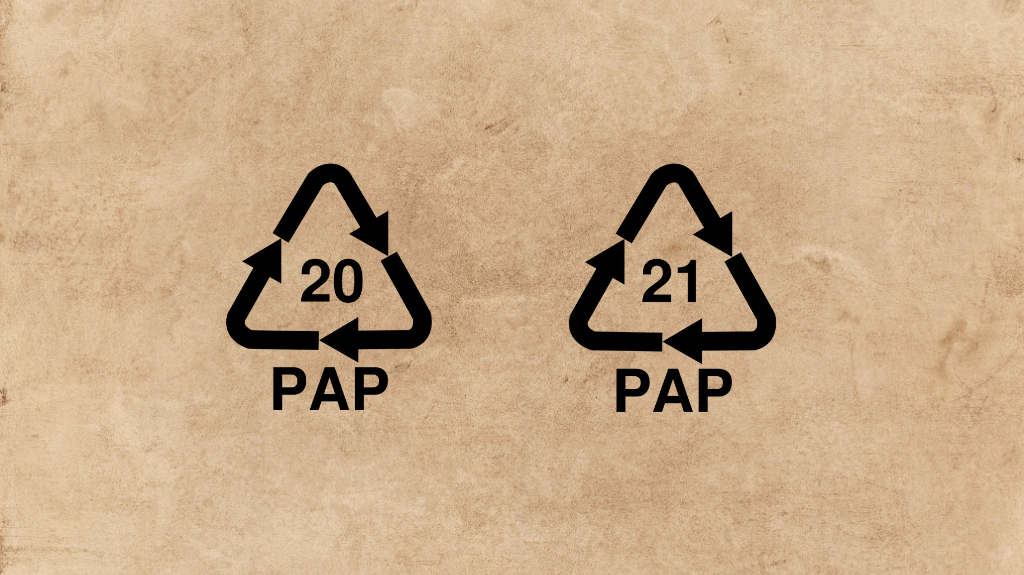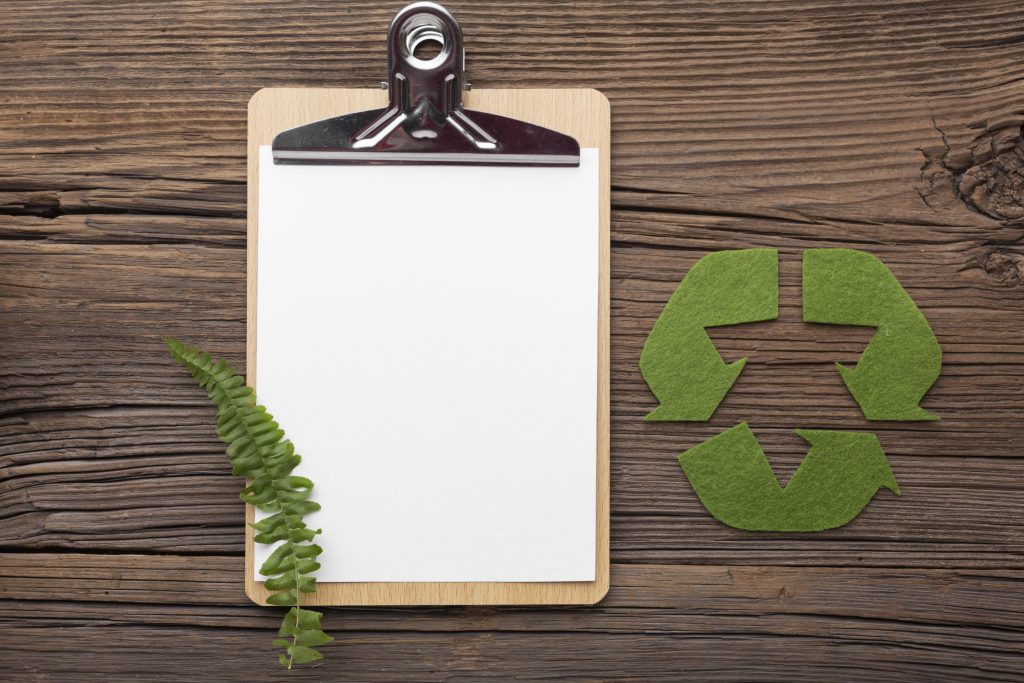
Recycling codes such as PAP20 and PAP21 are part of universal symbol use to enhance the recycling process. The appearance of the logos are aimed to help consumers, producers and recycling facilities identify and sort packages made of different materials. However, there are many confusing criteria for the regulations of PAP20 and PAP21 recycling symbols’ terms of use. In this article, we try to provide a general account for regulations for recyling logos and specific criteria for some countries.
Recycling code requirements are regulated by EU Packaging Waste Directive 97/129/EC. This directive covers all packaging and packaging waste, including:
- Plastic packaging
- Paper packaging
- Aluminium packaging
- Glass packaging
Recycling Codes for Paper and Fiberboard Packaging
The PAP20, PAP21 and PAP22 recycling codes are for paper and fibreboard packaging. PAP20 logo is used for packages made of corrugated fiberboard, such as cardboard boxes. PAP21 logo on packages should be present on the packages made from non-corrugated fiberboard (paperboard), such as cereal boxes, snack boxes etc. PAP 22 logos on the other hand must appear on products made of paper, such as paper bags, newspapers, and books.
Recycling Codes for Composite Paper Packaging
Among the composite packages, C/PAP 84 code is applied on packages containing composites of paper and cardboard / plastic / aluminium materials. Examples of this sort can be juice boxes, liquid storage containers, and cardboard cans.

The recycling symbols should be visible, legible, and placed in a prominent location on the packaging. However, this is not the only packaging criteria for recycling as they are regulated by national or local authorities. Here are the terms of use for PAP20 and PAP21 logos and recycling regulations by national authorities in Turkey, UK, USA, Germany and France.
Turkey:
In Turkey, the Ministry of Environment and Urbanization regulates the use of recycling logos on packaging. Companies must apply a packaging waste management system that includes the collection and sorting of packaging waste, as well as the recycling or disposal of the waste. The system must be approved by the Ministry of Environment and Urbanization. For detailed info, you can visit the website of the Ministry.
United Kingdom:
The Waste and Resources Action Programme (WRAP) in the United Kingdom regulates the use of PAP20 and PAP21 recycling logos. WRAP is a government-funded organization that promotes sustainable resource use. According to its regulations, the recycled content should be derived from various sources, such as post-consumer waste. Companies must also demonstrate compliance with relevant regulations, such as the Packaging Waste Regulations. The regulations require that companies register with the appropriate environmental agency. They should report on the amount of packaging waste they produce, as well as the amount of waste they recycle or recover. Companies are also required to meet certain recycling targets for different types of packaging materials. For 2023, recycling target for paper materials is 83%.
United States of America:
In the USA, there are no federal regulations specifically managing the collection, sorting, and recycling of packaging waste. Some states and localities have their own regulations or programs for governing packaging waste. However, some states require manufacturers to collaborate in recycling projects. For instance, companies may be required to pay a fee to support recycling efforts. Additionally, the FTC has guidelines on the use of environmental marketing claims, including claims about recycled content, that companies must follow.

Germany:
In Germany, the rules on the collection, sorting, and recycling of packaging waste are governed by Federal Environment Agency. Companies are required to comply with the Packaging Act which requires that companies participate in a dual system for packaging waste management. This system involves the collection and sorting of packaging waste, as well as the recycling or disposal of the waste. The system is funded by fees paid by producers based on the amount and type of packaging they place on the market.
France:
The Ministry of Ecological Transition in France requires companies to participate in an Extended Producer Responsibility (EPR) system. EPR regulates the management of packaging waste, including the collection, sorting, and the recycling. Recycled content should be derived from certain sources, such as waste paper or cardboard. The system is funded by fees paid by producers. The fees are based on the amount and type of packaging producers place on the market.
For more information on recycled packaging applications, visit our article on sustainable packaging!
